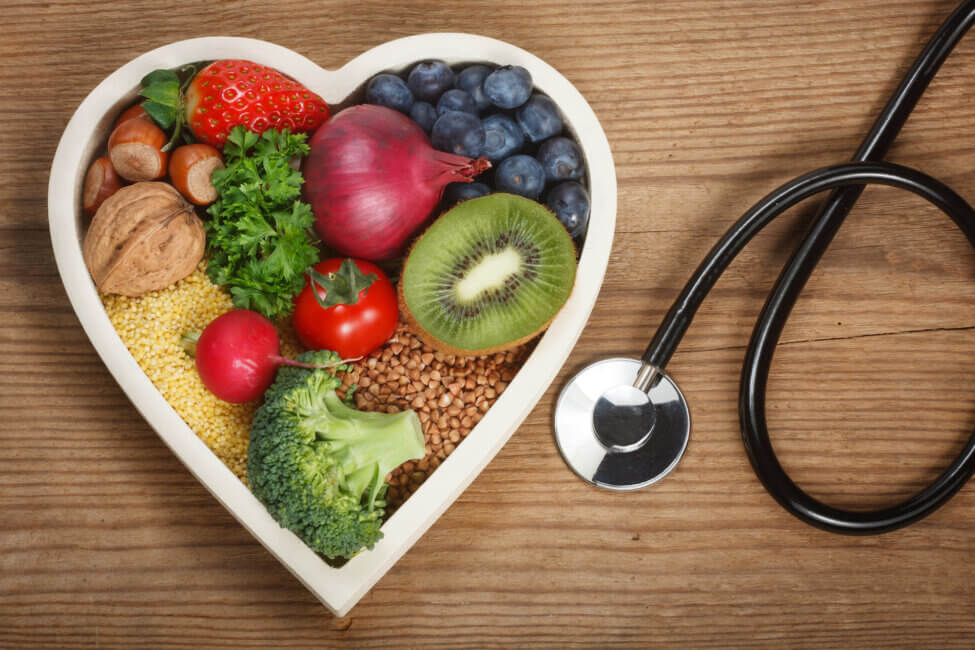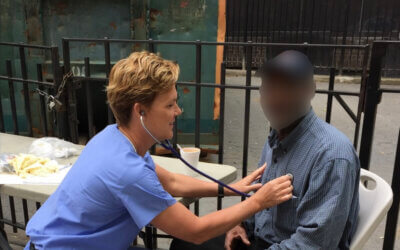Seven Tips to Eating Heart Healthy for Seniors
A registered dietician at Chapters Health System discusses tips to eating heart healthy and how these choices can help those with advancing age and heart disease.

It is American Heart Month. There’s no better time to appreciate and love the organ that keeps your body running. From circulating hormones to pumping the precious oxygen your body needs to function, the heart is literally the engine that keeps us moving. Like any engine, it needs proper maintenance and care. Refusing to smoke and committing to regular exercise are excellent ways to reduce your risk, but eating heart healthy meals is also important. According to the Harvard School of Public Health, following a heart healthy diet could reduce your risk of heart disease by 31 percent. So, what foods should you eat? What diets work best for seniors and people already dealing with advanced illnesses? Beau Miller, a registered dietitian for Chapters Health System with nearly three decades of experience in food science walks us through easy steps for eating heart healthy.
1. Incorporate a fruit or vegetable into every meal
“The powerful benefit of a heart healthy diet is the mix of certain nutrients found in various foods,” said Miller. “Many of these powerful nutrients occur naturally in plants are believed to be a large contributing factor to improved cardiovascular health markers.”
So, how does all that science translate to eating heart healthy foods? Simply put, there’s a lot to be said about, “an apple a day keeps the doctor away.”
“Your first thought should be, what fruit or vegetable am I going to eat,” said Miller. “Fruits and vegetables are the foundation of a heart healthy diet and as you become more and more knowledgeable about the diet, you will only have to make small changes because you already built the foundation from the start.”
You may ask, what are the best vegetables and fruit for eating heart healthy? Try these:
Vegetables:
- Leafy greens such as spinach, kale, cabbage.
- Carrots
- Broccoli
- Cauliflower
Fruits:
- Apples
- Bananas
- Oranges
- Pears
- Grapes
- Prunes
2. Look for 100 percent whole grain and 100 percent whole wheat products.
Understanding what “whole” means in terms of grain and wheat is important in making decisions on what foods to choose that are effective for heart health. First, what is a grain? There are many types including:
- Wheat
- Oats
- Rice
- Barley
- Sorghum
- Rye
- Millet
There are also two subgroups of grain: Whole grains and refined grains. A whole grain is complete in that it contains the entire grain (bran, germ and endosperm). When that whole grain is milled to remove the bran and germ leaving only the endosperm, it creates what is referred to as a refined grain. Products containing refined grains include white bread, cornmeal and white rice. The American Heart Association recommends eating six servings of grains per day with at least three of them being whole grain.
So, what is the difference between whole wheat and whole grain? Simple. Whole wheat is a product that contains the entire grain of wheat. Whole grain is a product that contains several different kinds of whole grains, possibly including wheat. You get greater variety with whole grain but both whole grain and whole wheat are very nutritious.
“Whole grains can provide a powerful positive impact in the diet for various health conditions including improved heart health,” said Miller. “This however does not mean that refined grain is “bad” but simply that due to the removal of the bran and germ, a refined grain usually contains less of the compounds that provide the benefit of a heart healthy eating pattern.”
3. Choose lean protein sources
Protein is a critical part of a healthy diet and finding sources of low-fat protein are an important supplement to a heart-healthy diet. So, what should you choose and what should you avoid?
Lean Proteins:
- Low-fat (1 percent) or skim milk
- Yogurt
- Eggs
- Cold-water fish, such as salmon and mackerel
- Skinless poultry
- Beans, peas and lentils
- Soybeans and soy products
- Lean ground meats, such as ground turkey
Proteins to avoid:
- Whole milk
- Fatty and marbled meats
- Hot dogs and sausages
- Bacon
- Fried and breaded meats
4. Consider a Mediterranean Diet
You’ve likely heard of this diet. If you already have heart disease or high blood pressure, your doctor may even prescribe it to you. It combines many of the heart-healthy foods we already touched on.
“The Mediterranean diet has been shown to be helpful in a variety of various health conditions,” said Miller. “The benefit it has on heart health are attributed to its cardioprotective and anti-inflammatory effects, as well as protecting cardio function.”
The Mediterranean diet consists of a variety of fruits, vegetables, beans, poultry, fish, nuts and seeds. There is also an emphasis on healthy fats. Olive oil is the commonly added fat, replacing other oils and fats such as margarine and butter. Another element of this diet is lowered intake of milk and dairy products, as well as red meat.
This diet is proven to reduce your risk of cardiovascular disease, maintain a healthy body weight, lower blood pressure, support healthy blood sugar and digestive health. According to a study involving nearly 26,000 women in 2018, the Mediterranean diet resulted in a 28-percent risk reduction for cardiovascular events, such as heart attacks.
5. Control Your Portions
What you eat isn’t the only important aspect of a diet. How much you eat is important too.
“As we discussed earlier, fruits and vegetables are the foundation of heart-healthy eating,” said Miller. “Imagine a plate and divide it into half. On one half is our foundation – fruits and vegetables where vegetables make up the majority of that half. We then split the other side of the plate in half where one of the halves is our grain serving and the other consists primarily of fish and poultry, and beans and nuts.”
Don’t forget: Low-fat dairy options also have a place in a heart-healthy diet. The American Heart Association recommends at least two servings per day for adults and three servings for teenagers and older adults. This includes low-fat milk, yogurt and low-fat cheese.
6. Keep an Eye on Your Sodium Intake
Reducing the amount of sodium in your diet can have positive effects on your cardiovascular health. According to data from the American Heart Association, reducing your sodium to 1,500 milligrams per day could result in a 25-percent decrease in high blood pressure. This is why reducing sodium is among the common caregiving tips for congestive heart failure patients. In addition to raising blood pressure, sodium also causes fluid retention. This is troublesome for heart failure patients who suffer from edema, which is caused by swelling in the legs, feet and abdomen, as a result of fluid retention.
7. Be Conscious of Processed Foods
“Recently, it seems the term “processed foods” has developed a negative reputation,” said Miller. “Let’s define what they actually are. A processed food is any food that has been altered, in any way, from its original form.”
Based on that definition, baby carrots, bagged spinach and whole grain bread are technically processed foods, but they all have a place in a heart-healthy diet. Like any other parts of a diet, it’s a matter of choosing the right processed foods.
Miller said consider the “apple a day keeps the doctor away” saying.
“When we compare that to a processed apple in the form of frozen or packaged apple slices, these new forms of the apple still contain the same powerful nutrients the apple had when it was whole,” said Miller. “By the same token though, if that apple is processed into apple juice and loses these needed powerful nutrients, then now the apple has become a food to avoid on a heart heathy diet.”
Chapters Health System is committed to serving the needs of its patients, families, caregivers, health providers, partners and communities.
For more information, please call our helpful Chapters Health and HospiceHelp24® team at 1.866.204.8611 or Contact Us.
Keep Exploring
















